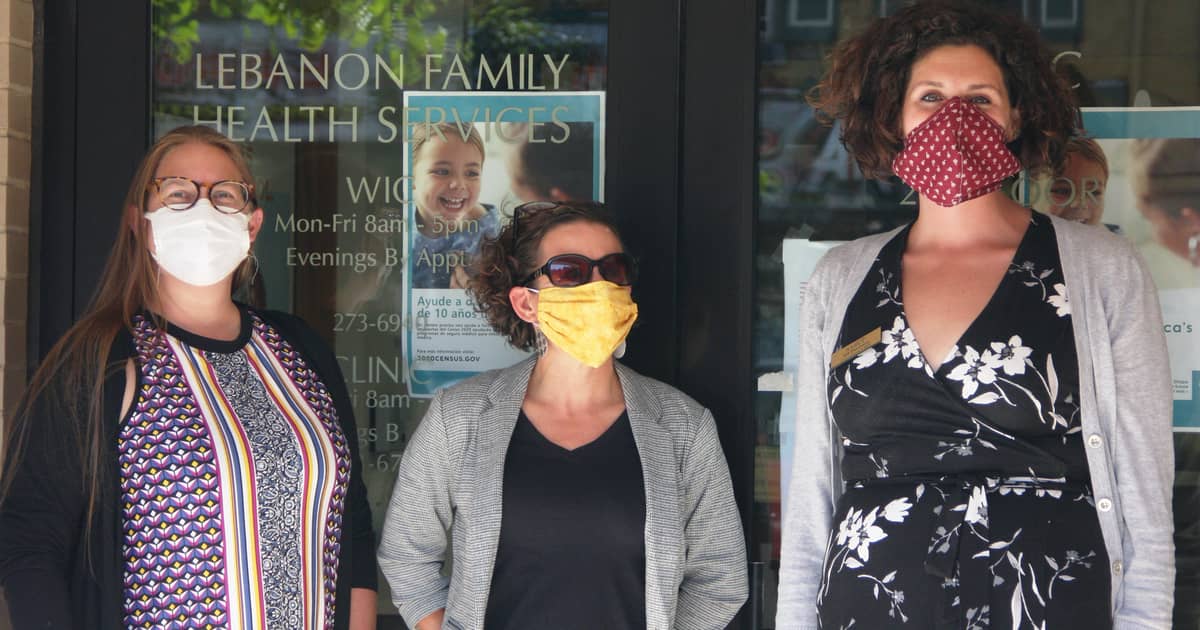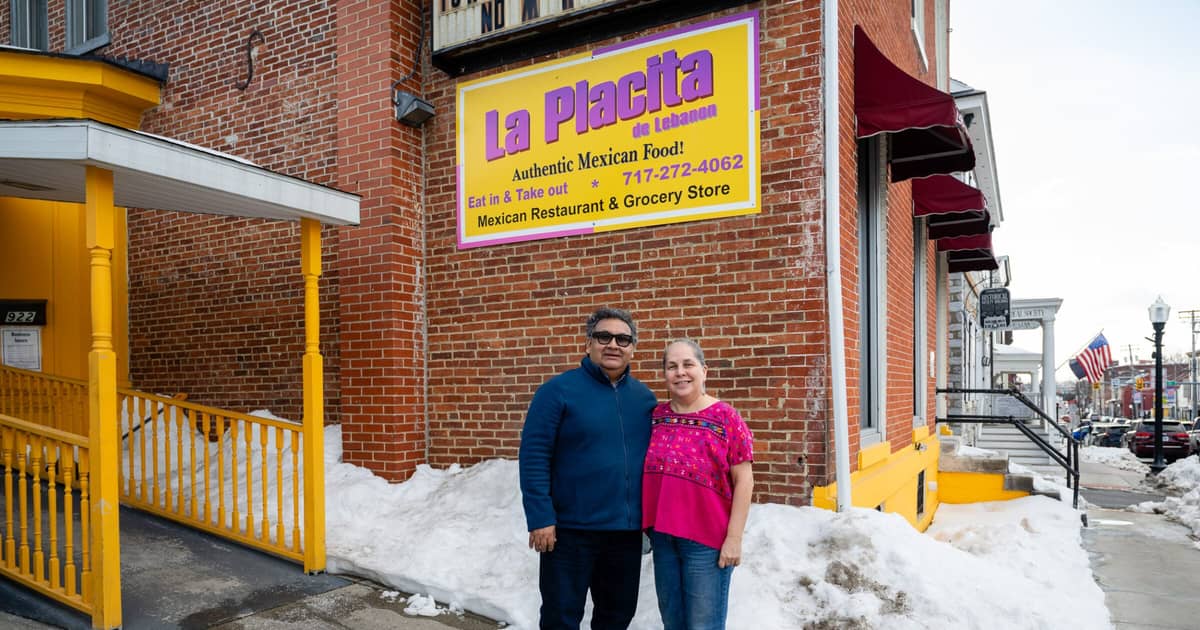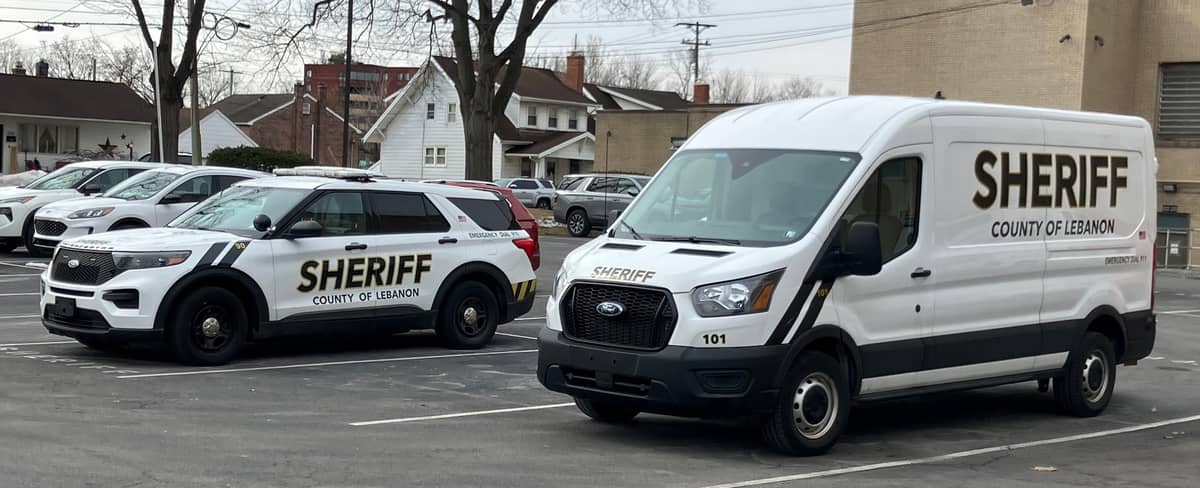Since the time of Cain and Abel, man has been mistreating man. Not only are violence and abuse inherent in our make-up, they help define who we are as human beings.
One of the missions of the Community Health Council of Lebanon County, a collaborative collection of 25 committees, 400 community volunteers and local agencies like SARCC (Sexual Assault Resource Counseling Center), the United Way of Lebanon County, Domestic Violence Intervention, Empower the Mind, and Better Together Mental Health Action Team, is to understand, curtail and prevent violence and abuse locally. Recently, the Community Health Council secured a $300,000 grant to help fund that mission.
It’s an ongoing initiative titled ‘Connected Together Lebanon County,’ but it may as well be called ‘Why Can’t We All Get Along?’
“If you could answer that, you would solve a lot of problems,” said Nikki Maurer, executive director of the Community Health Council of Lebanon County. “I think (violence) is internal and it’s environmental. Some people have more triggers than others. But it’s about community, and family supported. Compassion and kindness and understanding can make a little dent, and I do think we can make a little dent. I think we can make Lebanon County a kinder place to live.”

“In some cases, it’s lewd behavior, it’s environmental,” said Ali Perrotto, CEO of SARCC. “In order to commit violence of any kind, you have to have a fundamental belief that the other person is less than you. It’s not typical human behavior. There has to be a root to it.”
The Connected Together Lebanon County initiative seeks to identify like-minded, community stake-holders, the causes of local violence and abuse – including external factors like adverse childhood experiences, socio-economic reasons and conflict-management issues – and strategies of prevention. But there is also a training and therapy component involved to help manage violence and abuse that has already occurred.
“Connected Together Lebanon County’s mission is to bring a trauma-informed model to the community,” said Maurer. “With things like abuse, holding you back in school for a year, moving around a lot, all those have an impact on children, and the more of those you experience as a child, the more likely you are to have a disease or be in the criminal justice system. Many of us are walking around with childhood trauma that has never been diagnosed. We want to address people’s accumulative trauma and approach them about what they’ve been through in their lives. That’s called being trauma-informed.”

“Sometimes hurt people hurt people, but hurt people don’t always hurt other people,” said Perrotto. “There is an extremely high correlation between sexual violence and incarceration. You may use drugs and alcohol to deal with sexual abuse. It could lead to run-ins with the law. If we can treat the underlying factors, we can reduce crime. Things are connected in a very real way.”
Violence in Lebanon County manifests itself in many ways – things like child abuse, elder abuse, teen dating, sexual abuse, domestic violence, bullying, and gang violence. The Connected Together Lebanon County initiative seeks to identify specific problems in certain communities locally, initially in the City of Lebanon, Annville Township, Palmyra Borough and Myerstown Borough.
“Everybody can be a product of an adverse childhood experience,” said Maurer, a resident of West Cornwall Township. “We’ve picked those four municipalities because they have the highest percentage of people who fit the ALICE (Asset Limited, Income Constrained, Employed) profile. These are folks who are working parents. These are people who are employed, but are living at the poverty level. People who are in that position are tied to being exposed to violence. It can lead to violence or crime. These communities are like the pilots, and if this thing is successful, we can apply it to other communities in the county.”
“This grant and funding stream has two primary goals,” said Perrotto, a resident of Annville. “The primary is prevention, and the other is building a trauma-informed response. The therapy component gives us the tool to heal things that people are already carrying with them. Adverse childhood experiences increase the risks of long-term health effects. They increase the risk of heart disease or the risk of cancer. The more adverse childhood experiences an individual has had, the higher the instances of long-term health risks. The more trauma a person experiences, the more likely they are to have other things happen.”
So how often does violence and abuse rear its ugly head in Lebanon County? The answer seems to be not as much as other areas in Pennsylvania, but more than other counties in the state.
In one survey, 61 percent of Lebanon County adults reported having at least one adverse childhood experience when they were younger, and one in six local adult reported having four or more.
A WellSpan Community Health Needs Assessment in 2018 found that 55 percent of local adults reported having depressive symptoms on one or two days in the past two weeks, a three-percent increase from data in 2015. A different survey from 2017 found that 40 percent of Lebanon County’s youth reported feeling sad or depressed over most days in the previous year.
“Honestly, we’re generalizing,” said Maurer. “We, as a board, look at our community as a whole. For years, we’ve been trying to work on our county, but what we’ve found is that doesn’t work. The grant is going to allow us to look at it at a municipal level. One of the goals of the grant is to create mini-coalitions in communities and identify the municipalities’ problems.”
“Violence is an increasing concern and a wide-spread thing,” said Perrotto. “Sexual violence is a concern and a wide-spread thing. It’s hard for people to wrap their heads around that. The fact is people are complex. People may use authority, or trust that they’ve established over time.”
At this point, eradicating all violence and abuse in Lebanon County seems like an unrealistic goal. But stemming violence and decreasing abuse could provide a foothold in the on-going fight against it.
“We see progress, because it is generational,” said Maurer. “We’re raising a next generation that is hopefully less violent. The goal of the Community Health Council and this project is more compassion, more kindness and people being able to relate to each other better. We have a better chance of solving the county’s problems by shining a lens on different pieces of the community. What you do is get organized and you find stake-holders. We want to get law enforcement involved. We want to get schools involved. We want to get local government involved.”
“In the next two years, with this grant, if everything works the way it should, we’ll have a team of stakeholders,” said Perrotto. “We’re building this coalition of folks who are invested, who know their communities really well and who know about violence prevention very well. We’re trying to be really positive. We know violence is an issue. We can see terrible things. We’re working on what a solution looks like. It’s by the community, of the community and for the community.”
A united approach for a universal problem.
Questions about this story? Suggestions for a future LebTown article? Reach our newsroom using the contact form below and we’ll do our best to get back to you.
We’re here to help make Lebanon County a better place.
LebTown is an independent media organization that provides timely, accurate, and comprehensive journalism intended to help people navigate their daily lives and promote the general well-being of Lebanon County.
Journalists are today a diminishing presence at the local level across the country, and the single most important metric for LebTown long-term will be the number of journalists we employ to cover Lebanon County.
You’re already supporting LebTown as a member. If you’re able, please consider making an extra one-time contribution this year.
Questions about this story? Suggestions for a future LebTown article? Reach our newsroom using the contact form below and we’ll do our best to get back to you.
























